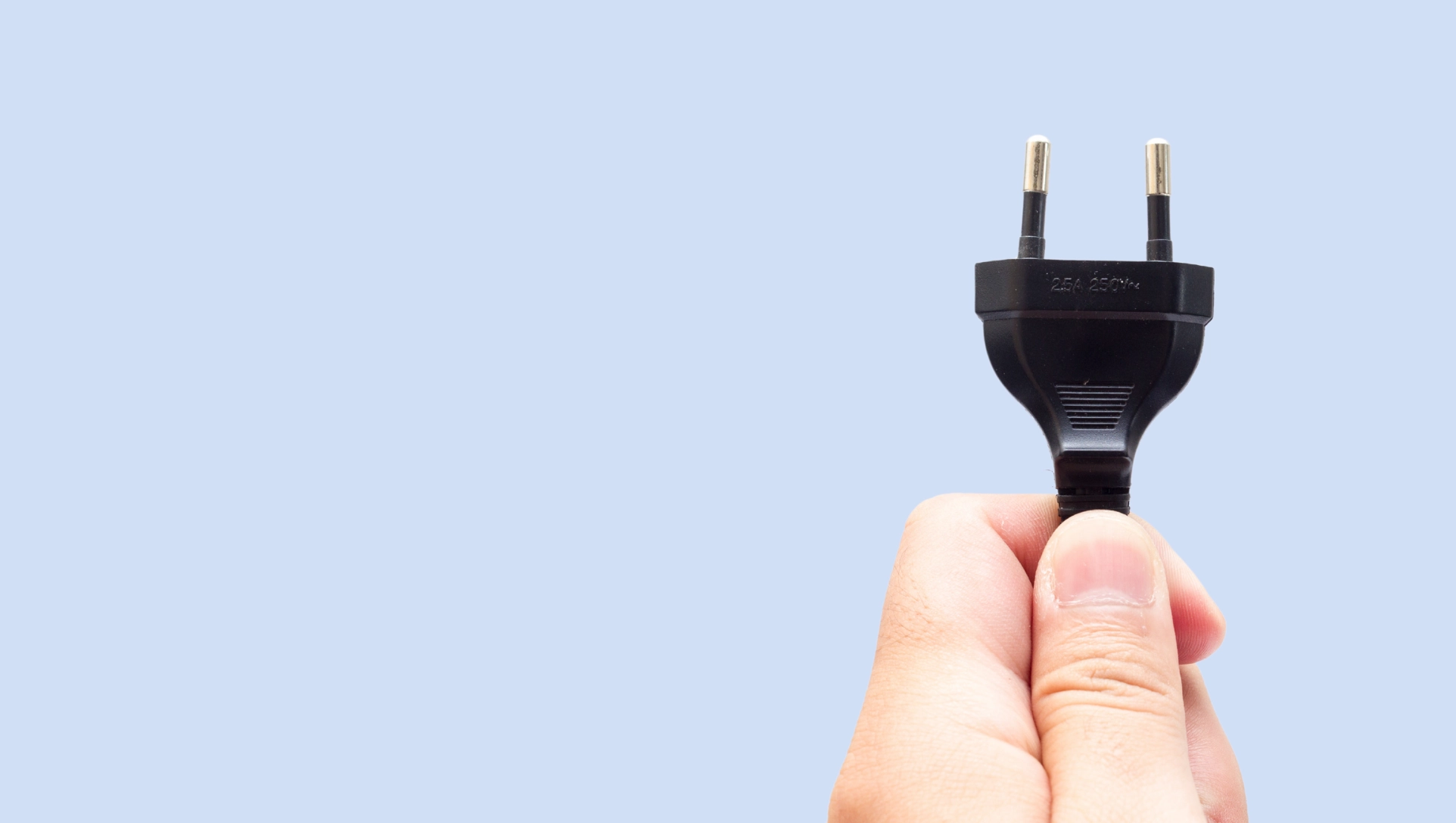
Home > Travel Planning > Travel Adapters for Germany: What You Need in 2026
Share this post
Germany, and all that comes with it, awaits!
However, travelers heading abroad to Germany need to do a little bit of prep work to make sure that they can charge their phones, laptops, and use their electronics safely while overseas.
If you live in the US, UK, or many other places around the globe, you're going to need to get a travel adapter and maybe even a converter.
This is because the sockets, plugs, and voltage are likely different in Germany to some extent.
Don't worry, we're going to talk about it all here, without getting too technical, so you have the need-to-know information and can get exactly what you need for your trip.
Without the right travel adapter, your charger's plug won't fit into the wall.
And without a converter? Your hair styling tools might short out, which isn't only dangerous, but it can ruin your tools.
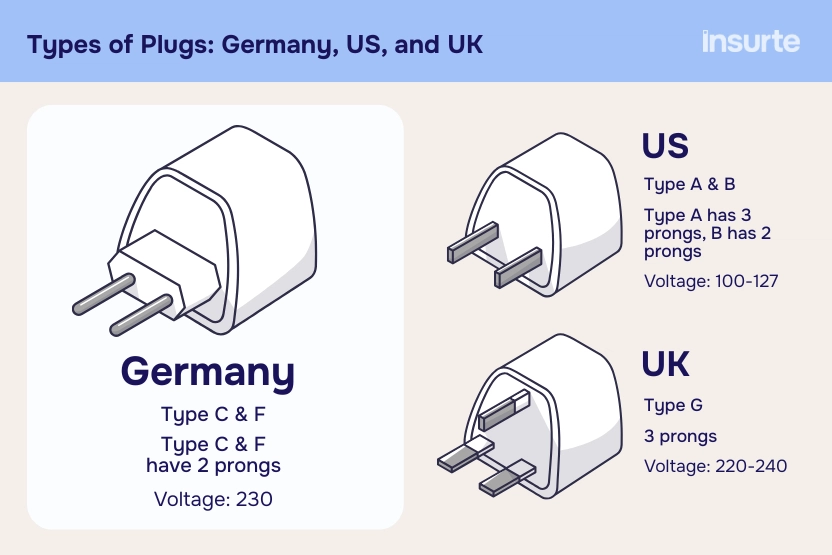
Electrical plugs used in Germany
Germany uses Type C and Type F plugs.
Both C and F plugs look very similar, but one is "grounded" and the other isn't. This simply means that one type has an additional safety feature to prevent against shocks.
That doesn't make the other one unsafe.
In fact, the US has the same thing, but with Type A and Type B. Type A has 3 prongs, or pins as they're called in the electrical world, and Type B has 2. The third prong in Type A is this safety feature!
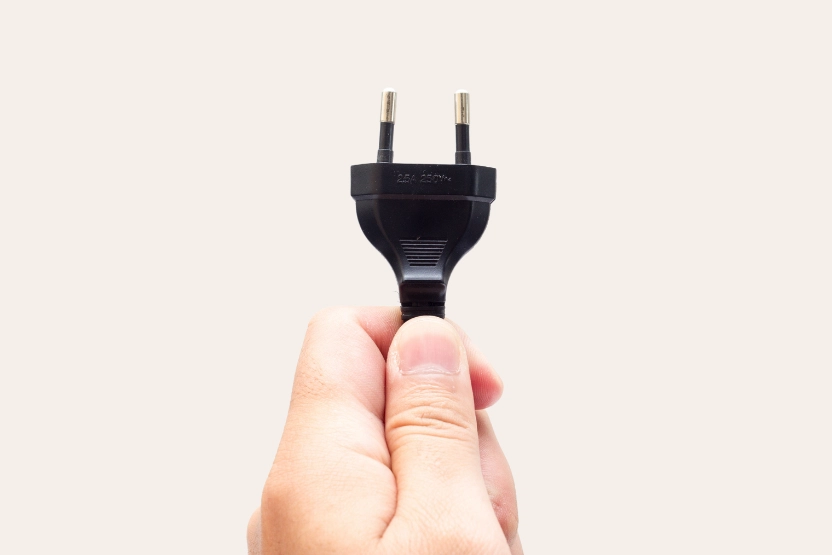
Who needs an adapter in Germany?
If your current electrical cords do not have a plug that looks like the photo above (Type C or F), you will need a travel adapter in Germany.
In short, if you're from the US, UK, Canada, Australia, and several other countries, you will need to get a travel adapter.
That said, if you already have a travel adapter for Spain, Italy, France, and some other European countries, you can use that!
Spain, Italy, and France have similar plug types and the same voltage (which we will talk about in a minute).
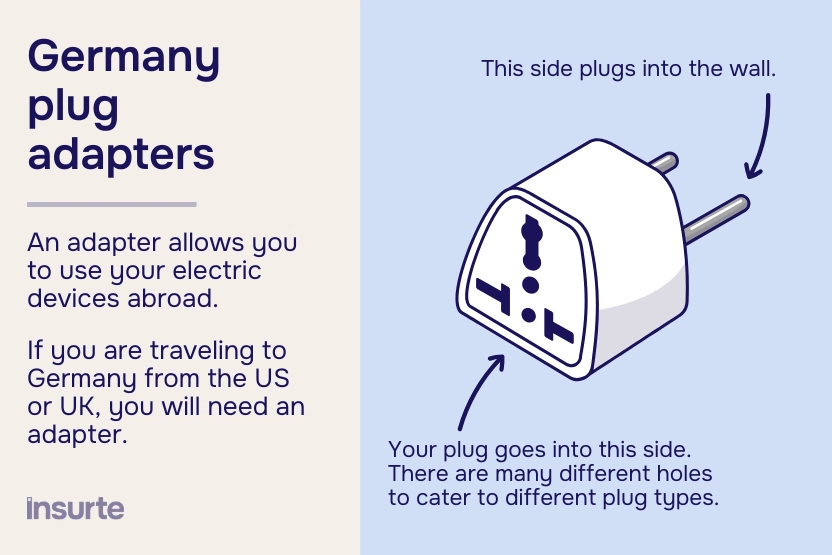
Which adapter is needed for Germany
You need an adapter that has Type C and/or F prongs. They can be one, the other, or have both options, but as long as you have one of the two, you're golden.
Just make sure that the adapter you choose also fits your plugs from back home (the US, UK, wherever that is).
Travel adapters work by "changing the shape" of your plug.
You put your plug into one end of the adapter, and the other end has prongs fit for the electrical sockets at your destination.
Traveling to Germany? 🥨
Get travel insurance and protect your trip!
If you're from the US or Canada
You need a travel adapter that has an input for Type A or B plugs. This adapter needs to plug into Type C or F sockets.
If you're from the UK
You need a travel adapter that has an input for Type G prongs. The adapter needs to plug into Type C or F sockets.
Wherever you are from, you can easily find a German plug adapter online by searching "US to Germany travel adapter" or "UK to Germany travel adapter", etc.
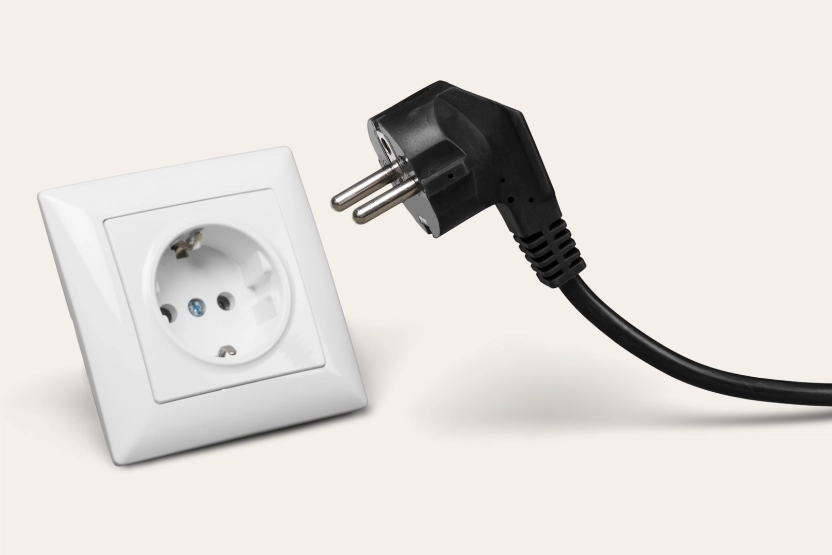
Voltage in Germany: How to prepare
Different areas of the world run on different levels of voltage.
In short, voltage is what pushes the electricity through the wires and into your electronics.
Electronics are designed to have specific levels of voltage run through them. This means that if you go to an area of the world that has a significantly different voltage, your electronics may not work well, or even be dangerous to use.
Germany runs on 230 volts. This is pretty much the same as other Western European countries like France, Spain, and Italy. It's also the same as the UK.
However, the States (and North America in general) run on lower voltage, 100-127 volts or so.
What does this actually mean?
Plugging electronics designed for lower voltage into higher voltage sockets can short them out, and may even pose a fire risk.
Some types of electronics, such as newer phones and laptops, are built to be "dual voltage", meaning they can safely work regardless of the voltage. If you're unsure, you should double-check your make and model.
Older devices may not be dual-voltage. On top of that, most hair tools and appliances aren't dual voltage.
Many people use their single-voltage electronics in Germany without a converter, but it isn't recommended. It's a safety issue, and could also ruin your electronics.
A converter, sometimes called a transformer, is recommended.
FAQs about Germany travel adapters
Other guides about Germany
Traveling to Germany from the US
Germany Visa Appeal Rules Have Changed: Here’s What to Know
Related posts
Upcoming travels ? Get Insured !
Find the right insurance for your trip by using our powerful comparison tool!
Sarah Pardi - February 26, 2026
Sarah Pardi - February 19, 2026
Sarah Pardi - February 13, 2026
Sarah Pardi - February 12, 2026





